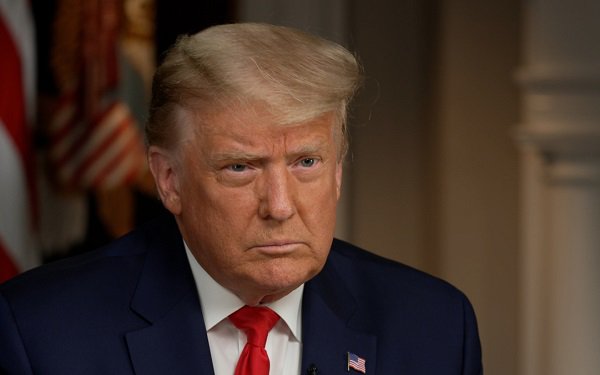Commentary
Trump Seeks To Force Facebook To Restore Account
- by Wendy Davis , Staff Writer @wendyndavis, October 7, 2021

Former President Donald Trump on Thursday asked a federal court to order Facebook to restore his account, arguing that his ongoing ban from the service could hurt the Republican Party's chances in upcoming elections.
“By de-platforming the presumptive head and most popular member of the Republican Party, cutting him off from the most effective and direct forms of communication with potential voters, defendant is threatening irreparable damage to the Republican Party’s prospects in the 2022 and 2024 elections,” his lawyers say in papers filed with U.S. District Court Judge Kathleen Williams in Miami.
In his new request, Trump largely recycles the same arguments he made last week, when he sought an injunction requiring Twitter to rescind his ban, and in August, when he asked a judge to issue a similar injunction against YouTube.
All three companies blocked Trump in early January, after the insurrection at the Capitol. In July, he sued the three tech platforms, claiming they violated his First Amendment rights by “censoring” him.
The First Amendment prohibits the government -- not private companies -- from suppressing speech.
Trump's lawyers attempt to deal with that obvious obstacle to their requests by contending that Democratic lawmakers somehow coerced the companies into banning Trump.
“Since 2019, Democrat [sic] members of the United States Congress, as well as now-President Joe Biden, have subjected social media companies and their CEOs, including Defendant, to increasing pressure to censor speech disfavored by them, and to promote their favored speech, or else face catastrophic legislative and/or regulatory consequences,” his lawyers write, apparently referring to potential changes to Section 230 of the Communications Decency Act.
While lawmakers on both sides of the aisle have criticized aspects of Section 230, Trump himself was the loudest critic: Throughout 2020, he repeatedly called Congress to repeal Section 230 -- a 25-year-old media law that protects web companies from liability for users' speech, as well as from lawsuits over content moderation decisions.
In a related development, on Wednesday U.S. District Court Judge Michael Moore in Miami granted YouTube's request to send Trump's lawsuit against the company to its home turf in the Northern District of California.
YouTube had urged Moore to transfer the case, arguing that its terms of service provide that all disputes will be litigated in federal or state courts in Santa Clara county.
Trump said those terms shouldn't apply for a number of reasons, including that he was president when YouTube banned him.
“The forum selection clause in YouTube’s (terms of service) does not apply to Plaintiff, who at all times relevant to this dispute was the sitting President of the United States and the head of the Executive Branch of the federal government,” his lawyers wrote in papers filed late last month.
Moore rejected that argument on Wednesday, writing that Trump's lawyers didn't present any legal authority to back up their contention, and that Trump is now suing as a private citizen -- not the president.
“Trump agreed to the (terms of service) in his individual capacity, has brought this suit in his individual capacity, and is seeking the restoration of his YouTube account in his individual capacity,” Moore wrote.
While the decision to send the case to California marks a preliminary defeat for Trump, his lawsuit isn't likely to gain traction no matter where it's heard.
Dozens of people throughout the country have claimed that tech companies violated the First Amendment by suppressing speech. So far, the tech companies have prevailed in all of those cases.



